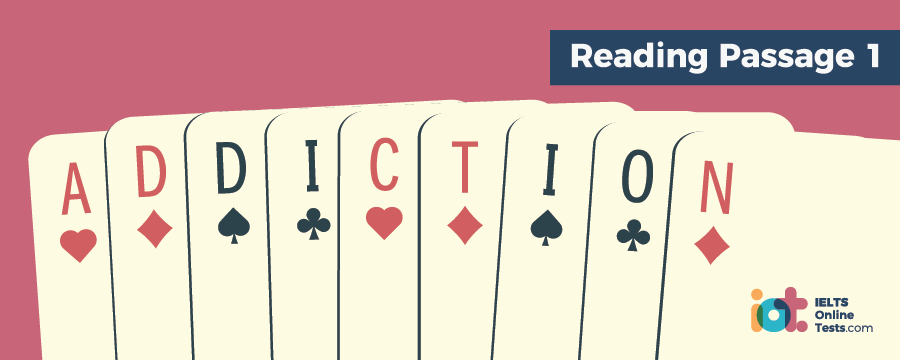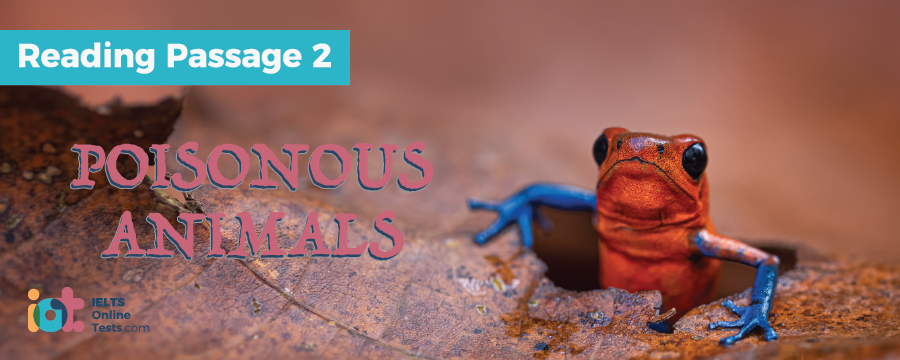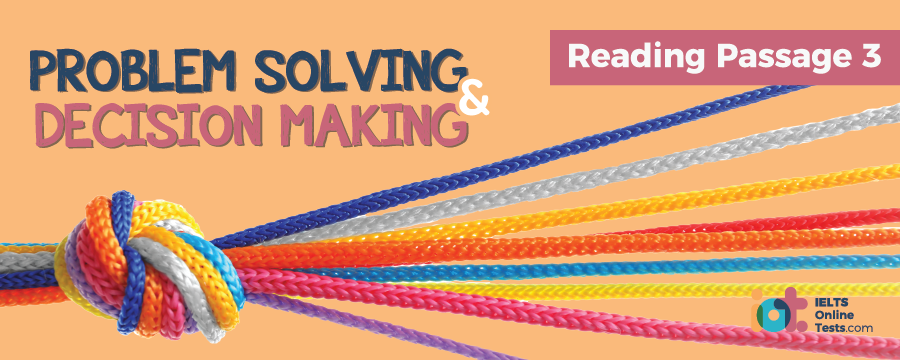
IELTS Mock Test 2021 April
- 发布时间: 27 Apr 2021
- 模考人次: 745,033
正确答案:
Part 1: Question 1 - 12
- 1 x
- 2 iii
- 3 ix
- 4 v
- 5 i
- 6 vi
- 7 (An) interest
- 8 Productivity
- 9 Crime
- 10 Gambling
- 11 Impulse control disorders
- 12 Psychological (root)
- 1 x
- 2 iii
- 3 ix
- 4 v
- 5 i
- 6 vi
- 7 (An) interest
- 8 Productivity
- 9 Crime
- 10 Gambling
- 11 Impulse control disorders
- 12 Psychological (root)
Part 2: Question 13 - 26
- 13 A
- 14 B
- 15 B
- 16 NOT GIVEN
- 17 FALSE
- 18 TRUE
- 19 FALSE
- 20 NOT GIVEN
- 21 TRUE
- 22 NOT GIVEN
- 23 hunting
- 24 Inland Taipan
- 25 Populated areas
- 26 Medusa
- 13 A
- 14 B
- 15 B
- 16 NOT GIVEN
- 17 FALSE
- 18 TRUE
- 19 FALSE
- 20 NOT GIVEN
- 21 TRUE
- 22 NOT GIVEN
- 23 hunting
- 24 Inland Taipan
- 25 Populated areas
- 26 Medusa
Part 3: Question 27 - 40
- 27 E
- 28 A
- 29 B
- 30 A
- 31 C
- 32 D
- 33 B
- 34 Programming
- 35 True
- 36 Feelings
- 37 Mood
- 38 NOT GIVEN
- 39 NO
- 40 YES
- 27 E
- 28 A
- 29 B
- 30 A
- 31 C
- 32 D
- 33 B
- 34 Programming
- 35 True
- 36 Feelings
- 37 Mood
- 38 NOT GIVEN
- 39 NO
- 40 YES
详细试卷答案解析:
Questions 1-6
Reading Passage 1 has seven paragraphs A-G.
Choose the correct heading for paragraphs B to G from the list of headings below.
Write the correct number i-x in boxes 1-6 on your answer sheet.
| List of Headings | |
| i | A change in methods |
| ii | The falling level of addiction |
| iii | Biological changes and associated risks |
| iv | The long term damage of addiction |
| v | Disagreements about definition |
| vi | Advice for those involved |
| vii | The changing nature of addiction in children |
| viii | The lack of clarity in modem interpretations of addiction |
| ix | Modern label for taking addiction to extremes |
| x | Not all addictions are cause for concern |
Example: Paragraph A; Answer: viii
1 Paragraph B
2 Paragraph C
3 Paragraph D
4 Paragraph E
5 Paragraph F
6 Paragraph G
- 1 Answer: x
Keywords in Questions
Similar words in Passage
Q1: Paragraph B. Not all addictions are cause for concern.
The first is related to those forms of addictions that are perhaps not life-threatening or particularly dangerous, and are often labelled in an almost tongue-in-cheek manner...
Q1:
According to the first sentence of paragraph B, there are three categories of addiction. We can easily recognize that paragraph B is all about the first kind of addiction, which is not life-threatening or dangerous. In other words, there are forms of addictions that we do not necessarily have to worry about, which means that they are not cause for concern. Therefore, the answer is x (Not all addictions are cause for concern).
- 2 Answer: iii
Keywords in Questions
Similar words in Passage
Q2: Paragraph C. Biological changes and associated risks.
…ingestion of a drug (either natural or synthetic) to temporarily alter the chemical constitution of the brain. It is a combination of physical and psychological dependency on substances that have known health dangers, and the knock-on problem...
Q2:
Reading the first sentence of paragraph C, we can know that this paragraph is about the danger of substance addiction. “The chemical constitution of the brain” is related to human biology. The two phrases “alter the chemical constitution of the brain” and “biological changes” have a similar meaning. We can also know that health dangers and the knock-on problem are the associated risks according to the second sentence. Therefore, the answer is iii (Biological changes and associated risks).
- 3 Answer: ix
Keywords in Questions
Similar words in Passage
Q3: Paragraph D. Modern label for taking addiction to extremes.
Finally there is behavioural addiction, which is regarded as ‘a compulsion to engage in some specific activity, despite harmful consequences’ and is a relatively recent entrant to the field. This is where the ‘soft’ addictions taken go beyond a safe limit and can become dangerous.
Q3:
We can easily recognize that paragraph D is about the last category of addiction. According to the first sentence, this category is a “recent entrant”, a new or modern definition of addiction. If “soft addictions” are taken to extremes, they can be categorized or labeled as behavioural addiction. In other words,, the act of taking addition to extremes could have a modern label, behavioural addiction. Therefore, the answer is ix (Modern label for taking addiction to extremes).
- 4 Answer: v
Keywords in Questions
Similar words in Passage
Q4: Paragraph E. Disagreements about definition.
the point at which a soft addiction becomes a behavioural addiction is both hard to define and cause for significant controversy.
Q4:
The main idea of paragraph E is mentioned in the first sentence. We have all the similar words in this sentence. Two cases of disagreement or controversy are also mentioned, “behavioural addiction” or “leisure”, “addiction” or “impulse control disorders”. Therefore, the answer is v (Disagreements about definition).
- 5 Answer: i
Keywords in Questions
Similar words in Passage
Q5: Paragraph F. A change in methods.
The correct course of action…
The traditional approach…
There is now an increasing tendency to consider not only the mechanical nature of addiction, but the psychological source.
Q5:
The main idea of paragraph F is mentioned in the first sentence, the various courses of action or methods. The traditional approach or method is now no longer the best in long term. There is another idea that people should consider both the mechanical nature and psychological source of addiction, unlike the traditional approach. This is clearly a change in methods. Therefore, the answer is i (A change in methods).
- 6 Answer: vi
Keywords in Questions
Similar words in Passage
Q6: Paragraph G. Advice for those involved.
For non-professionals with people in their lives who are suffering from some forms of addiction, the importance now is in focussing on supporting their recovery, not enabling their dependence.
Q6:
The main idea of paragraph F is mentioned in the first sentence, what non-professionals with people suffering from addiction should focus on. This is clearly the advice for people involved. Therefore, the answer is i (Advice for those involved).
Questions 7-12
Answer the questions below.
Choose NO MORE THAN THREE WORDS from the passage for each answer.
Write your answers in boxes 7-12 on your answer sheet.
It is increasingly difficult to differentiate between an addiction and what?
7
What can soft addictions can lead to a decline in?
8
Addictions that involve consumption of a drug and have a clear connection with what?
9
What specific addiction has increased considerably over recent years?
10
In some cases, addictions should actually be labelled as what?
11
Extreme addictions often have what kind of root cause?
12
- 7 Answer: (An) interest
Keywords in Questions
Similar words in Passage
Q7: It is increasingly difficult to differentiate between an addiction and what?
the lines between addiction and interest are far harder to identify.
Q7:
The answer must be a noun/noun phrase with no more than three words.
This sentence contains all words or phrases with meanings similar to those of keywords. To “identify the line between” means to “differentiate”. Therefore, the answer is (an) interest.
- 8 Answer: Productivity
Keywords in Questions
Similar words in Passage
Q8: What can soft addictions can lead to a decline in?
This category is referred to as soft addiction and is generally related only to a potential loss of productivity...
Q8:
The answer must be a noun/noun phrase with no more than three words.
This sentence contains the keyword “soft addiction” and words with meanings similar to those of the other keywords. “Loss” could be a synonym for “decline”. Therefore, the answer is productivity.
- 9 Answer: Crime
Keywords in Questions
Similar words in Passage
Q9: Addictions that involve consumption of a drug and have a clear connection with what?
the very strong connection between drug abuse and crime.
Q9:
The answer must be a noun/noun phrase with no more than three words.
This sentence contains the keyword “connection” and words with meanings similar to those of the other keywords. “Drug abuse” means “addictions that involve consumption of a drug”. Therefore, the answer is crime.
- 10 Answer: Gambling
Keywords in Questions
Similar words in Passage
Q10: What specific addiction has increased considerably over recent years?
Also included in this grouping are concerns like excessive gambling, and for many the combination of the availability and anonymity of the internet, as well as a plethora of online gambling sites, has led to a vast increase in this form of addiction.
Q10:
The answer must be a noun/noun phrase with no more than three words.
This sentence contains the keyword “increase” and words with meanings similar to those of the other keywords. “A vast increase” means “a considerable increase”. The form of addiction mentioned here is gambling. Therefore, the answer is gambling.
- 11 Answer: Impulse control disorders
Keywords in Questions
Similar words in Passage
Q11: In some cases, addictions should actually be labelled as what?
some of the issues covered by the umbrella term ‘addiction’ are actually mislabelled, and they belong more to a different category altogether and should be referred to as ‘Impulse control disorders’.
Q11:
The answer must be a noun/noun phrase with no more than three words.
This sentence contains all words with meanings similar to those of the keywords. Additionally, we have the information from question 4, the case of “addiction” or “impulse control disorders”. Therefore, the answer is Impulse control disorders.
- 12 Answer: Psychological (root)
Keywords in Questions
Similar words in Passage
Q12: Extreme addictions often have what kind of root cause?
Often, extreme addictions – both substance based and behavioural – stem from a psychological root...
Q12:
The answer could be a noun/noun phrase/adjective with no more than three words.
This sentence contains all the keyword “extreme addictions” and “root”. Additionally, to “stem from something” means to “start or develop as a result of something”. According to this sentence, extreme addictions are a result of a psychological root. In other words, extreme addictions have a psychological kind of root cause. Therefore, the answer is psychological.
READING PASSAGE 1
You should spend about 20 minutes on Questions 1-12, which are based on Reading Passage 1 below.

THE NATURE OF ADDICTION
A. Many people would perhaps, at least as an immediate response, not consider themselves to be ‘addicts’, yet a closer look into aspects of lifestyle and mental attitude often reveal a far different picture. The main problem at presents that the traditional definition of the word has become blurred and the lines between addiction and interest are far harder to identify. In the past, the label ‘addict’ was generally applied to those with an insatiable appetite for certain substances that were traditional known to be harmful, illegal or both: psychoactive drugs, alcohol and nicotine, for example. More recently, however, we find that a there is a multitude of potential addictions. Gambling, food, work, shopping – all of which are potential areas where addiction can lurk.
B. To try to define the subject of addiction (and in many cases the subsequent course of treatment to best combat it), psychologists now commonly referred to three distinct categories. The first is related to those forms of addictions that are perhaps not life-threatening or particularly dangerous, and are often labelled in an almost tongue-in-cheek manner, such as the consumption of chocolate possibly leading to the creation of a ‘chocoholic’. This category is referred to as soft addiction and is generally related only to a potential loss of productivity; in the workplace, an employee who is addicted to social networking sites is likely to be a less useful member of staff.
C. Substance addiction, however, is a completely different category, and focuses ‘ on ingestion of a drug (either natural or synthetic) to temporarily alter the chemical constitution of the brain. It is a combination of physical and psychological dependency on substances that have known health dangers, and the knock-on problem that users in an addicted state will often go to great lengths to acquire these substances, hence leading to the very strong connection between drug abuse and crime.
D. Finally there is behavioural addiction, which is regarded as ‘a compulsion to engage in some specific activity, despite harmful consequences’ and is a relatively recent entrant to the field. This is where the ‘soft’ addictions taken go beyond a safe limit and can become dangerous. Overeating, especially on sweetened foods, is one of the more common behavioural addictions, potentially leading to morbid obesity and associated health risks. Also included in this grouping are concerns like excessive gambling, and for many the combination of the availability and anonymity of the internet, as well as a plethora of online gambling sites, has led to a vast increase in this form of addiction.
E. However, the point at which a soft addiction becomes a behavioural addiction is both hard to define and cause for significant controversy. A child who comes home after school and plays on the internet for three hours is considered by some to be suffering from a behavioural addiction; to others, this is just a modern form of leisure time and just as valid as reading a book or playing outside. Another point of friction among people involved in studying and treating sufferers is that some of the issues covered by the umbrella term ‘addiction’ are actually mislabelled, and they belong more to a different category altogether and should be referred to as ‘Impulse control disorders’.
F. The correct course of action when attempting to overcome an addiction varies greatly between the type of addiction it is, but also varies considerably among the medical community. Take substance addiction, for example. The traditional approach has been to remove the source – that is, remove the availability of the drug – but this is now no longer concerned the best long term approach. The old idea of incarcerating the addict away from any drugs proved faulty as this did not prevent relapses when back in society. There is now an increasing tendency to consider not only the mechanical nature of addiction, but the psychological source. Often, extreme addictions – both substance based and behavioural – stem front a psychological root such as stress, guilt, depression and rejection, and it is for this reason that counselling and open discussion are having more successful long-term results.
G. For non-professionals with people in their lives who are suffering from some form of addiction, the importance now is in focussing on supporting their recovery, not enabling their dependence. Judgemental attitudes or helping to conceal addiction have been shown not only to perpetuate the problem, but in many cases actually exacerbate it.
--------------------
Great thanks to volunteer Trương Nhật Minh who has contributed these explanations and markings.
If you want to make a better world like this, please contact us.












